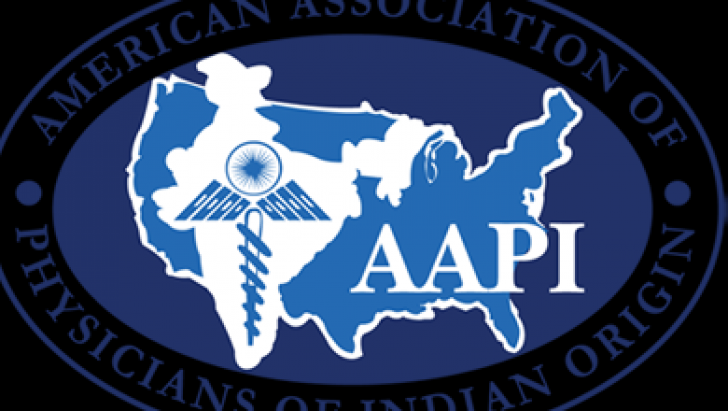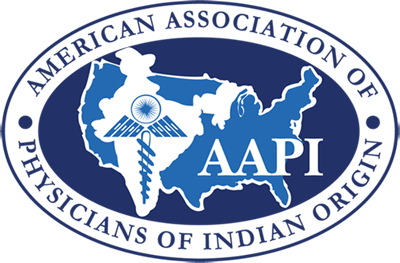Health
AAPI Legislative Day will be held on April 12th

(Washington, DC: March 14, 2017) The growing influence of doctors of Indian heritage is evident, as increasingly physicians of Indian origin hold critical positions in the healthcare, academic, research and administrative positions across the nation. With their hard work, dedication, compassion, and skills, they have thus carved an enviable niche in the American medical community. AAPI’s role has come to be recognized as vital among members and among lawmakers.
In this context, as the nation continues to be divided on the health reforms, AAPI’s legislative day planned for next month on capitol and is expected to be addressed by dozens of US lawmakers from both the major parties, comes to be a vital part of AAPI’s growing influence and having its united voice heard in the corridors of power. “We are excited to announce that our next Legislative Day is on April 12th on capitol Hill in Washington, DC,†said Dr. Gautam Samadder, President of AAPI.
“Our daytime program begins at 09:00 am and will include lunch on the Capitol in the Rayburn Building. We will conclude in the afternoon, giving participants the opportunity to meet their own Congressman on their own time. That evening, we are planning for a reception and dinner with several dignitaries at the Indian Embassy,†summarized, Dr. Samadder.
Describing that AAPI is a non-political umbrella organization which has nearly 90 local chapters, specialty societies and alumni organizations. Almost 10%-12% of medical students entering US schools are of Indian origin. AAPI represents the interests of over 60,000 physicians and 25,000 medical students and residents of Indian heritage in the United States, Dr. Samadder, a prominent physician with decades of service to the country, said, “The mission AAPI, the largest ethnic organization of physicians, is to provide a forum to facilitate and enable Indian American physicians to excel at inpatient care, teaching and research, and to pursue their aspirations in professional and community affairs. The Executive Committee is working hard to ensure active participation of young physicians, increasing membership, and enabling AAPI’s voice to be heard in the corridors of power, and thus taking AAPI to new heights.â€
There are many issues affecting our community. An important debate is about the merits of doing away with the individual mandate. “As Congress has now passed a repeal of this part of the Affordable Care Act, which takes place in 2019, what does this mean for the average physician practice if patients drop their health care coverage and how will this impact premiums?†Dr. Naresh Parikh, President-Elect of AAPI, asks.
“Now is the time to ensure our voices are heard on these vital issues. Additionally, those with good contacts with their own congressman, should reach out to his/her office and ask them to join us at our program in the Rayburn Building, banquet room B-338, between 10:30 am to 1:30 pm. If your congressman would like to speak, we can arrange their participation,†Dr. Ashok Jain, BOT chair, said.
According to AAPI Legislative Chairman, Dr. Vinod K. Shah, AAPI’s legislative initiatives for 2017-18 include, addressing Physician Shortage, and urged the Congress to increase Residency Positions across USA. “Our nation is currently experiencing a physician shortage, which will be exacerbated by retiring baby boomers. The result of such a shortage may affect thousands of patients’ access to a physician, and ultimately the health care they need. The only way to address this future crisis is to increase the number of residency positions available for future physicians to get trained, so that our nation can effectively manage the need for increased patient care. Increasing the size of medical school classes is not enough. There must be a simultaneous increase in the size of residency positions to train these future doctors. As Congress capped the number of residency positions in 1997, it is time for Congress to act NOW to remedy this critical situation. AAPI believes that all Americans have the right to see a physician.â€
AAPI Legislative Co-Chair, Dr. Sampat Shivangi, pointed to some of the other initiatives that are being presented to the Congressmen. “They include: Lowering the Cost of Prescription Drugs; Immigration Reform: H-1 and J-1 visas are used by many Indian American physicians, playing an important role in providing critical health care across the country. Combined with the Green Card backlog consisting of more than 4 million people, AAPI members are very concerned about the impact immigration reform will have on the Indian American community.â€
Dr. Samadder pointed to Medicare and Medicaid Reimbursements. He said, “These programs have not kept up with the cost of care and the growing populations utilizing them. It is critical that Congress review reimbursement schedules; otherwise, patients may not be able to find a physician in their community who accepts Medicare and/or Medicaid patients.
AAPI has been urging the Congress to enact Tort Reform: In order to reduce the practice of defensive medicine, bring down the overall cost of health care, and limit the number of meritless lawsuits, tort reform will bring fairness into the court system and better serve both the doctor and patient communities.
AAPI supports federal and state legislation that places effective caps on non-economic damages, limits the use of joint-and-several liability, provides physicians with flexibility to negotiate settlements with medical insurers and further limits the statute of limitations for filing medical malpractice claims.
Pointing out that from 1980-2005, while medical school enrollment remained flat, the U.S. population increased by more than 70 million people. Because the percentage of baby-boomer generation doctors (55 and older) rose from 27 percent to 34 percent during this time, the Association of American Medical Colleges (AAMC) predicts that America will need 90,000 physicians by 2020, Dr. Ashok Jain, said, the number of physicians needed by 2025 according to the AAMC will reach a staggering 130,000. One way to address this shortage is to increase medical school class sizes to meet this future health care need. This issue is vital as it pertains to health care reform, as more physicians will be needed to provide quality health care to our nation’s uninsured patients.
"In order to raise our voices together and to have our voices heard on Capitol, Hill, we look forward to seeing you on Capitol Hill on Thursday, April 12th, for our Legislative Day,†Dr. Samadder added. For more information on AAPI and its programs and initiatives, please visit: www.aapiusa.org
Ajay Ghosh(203) 583-6750




































